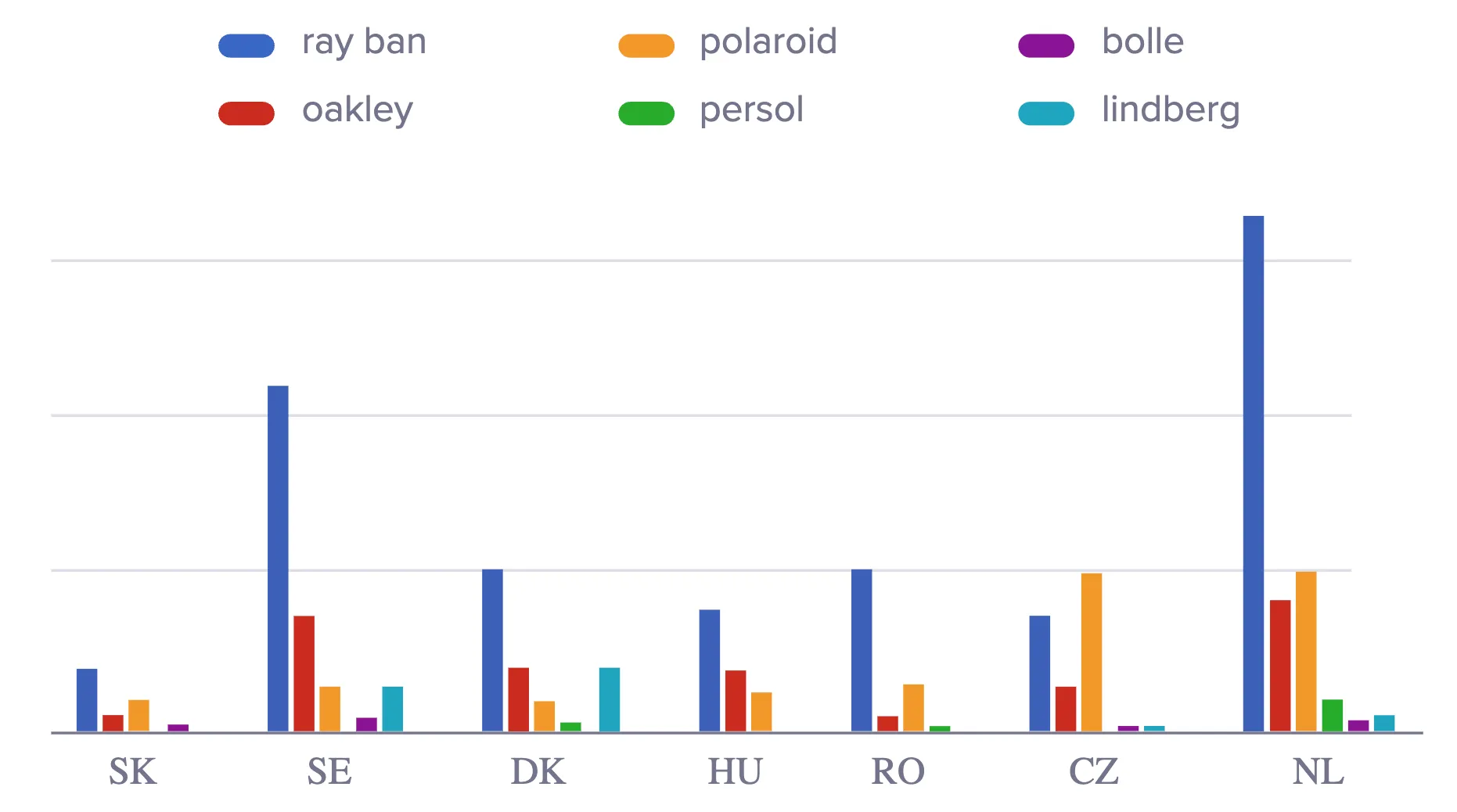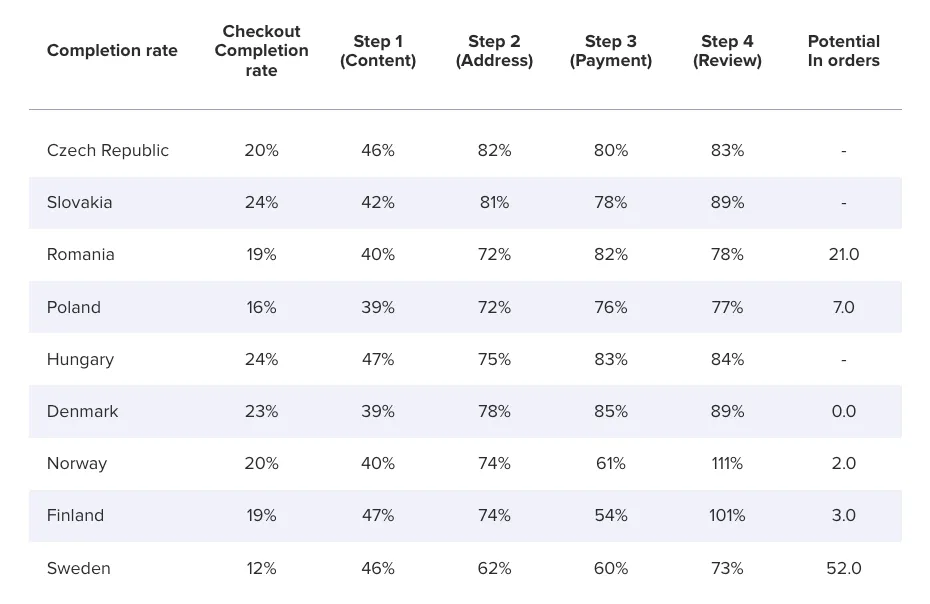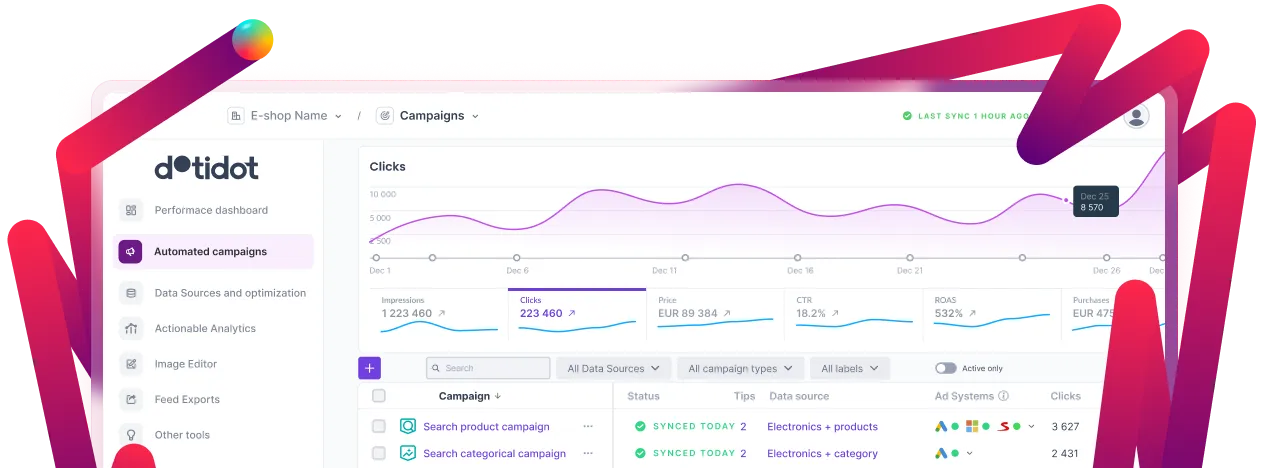Book a call with us








Dexfinity has been a successful digital agency and online export for over 20 years. Its biggest client, eyerim, an online store selling over 30,000 models of designer eyeglasses, had established itself in the Czech Republic and Slovakia and wanted to spread further.
Which markets to expand to?
Dexfinity was no stranger to finding prospective markets for its clients. It knew to make its decision based on:
After doing some research, mainly in Google Keywords Planner, Dexfinity decided for the following markets:
It ruled out markets like Spain, where the competition undercut its prices by 30%.
Furthermore, eyerim wanted to enter Scandinavian markets—Denmark, Finland, Norway, and Sweden, in particular—as those are a fashion mecca. These markets are harder to get into, but it was worth trying.

In its research, eyerim found that Lindberg, a brand it wasn't carrying, was quite popular in Denmark. That inspired talks started to get the brand into its inventory.
Setting up new campaigns from scratch would have been extremely time-consuming. Dexfinity already had long tails set up for Slovakia, so they wanted to start with those, especially as they were proven to work.
Fortunately, with the help of Dotidot's customer support, Dexfinity found it could duplicate its entire Slovak organization and then just translate and tweak its campaigns.
For projects like eyerim, Dotidot is excellent. I’d recommend Dotidot as a professional tool with excellent technical support. To me, that’s the biggest highlight.
Michal Vavro, Dexfinity’s PPC specialist
Writing campaigns for foreign countries can be tricky. Dexfinity tackled the issue by starting from its Slovak campaigns and adjusting them based on:
Using Google Translate, Dexfinity was able to glue together ads that made sense.
Checking texts was harder. For Romanian and Hungarian, Dexfinity had native speakers in-house. Polish is similar to Czech, so Dexfinity had a sense of what it was doing.
Scandinavian countries were a tough nut, though. Dexfinity collaborated with a few agencies that eyerim worked with as well as a few freelancers. That said, when there wasn't an in-house speaker, things took much longer than they would otherwise.
Clicking an ad is one thing, buying a product is another. Dexfinity knew that a 23% checkout completion rate was the mark of a strong market. After launching around March 2017, it kept an eye on this metric and, whenever it was underperforming, it delved into figuring out why.
In Sweden, it found that it was standard to try products out and then pay by invoice, comprising 30% of the market. In Romania, it found that people were used to putting in their region rather than a postal code.

With tweaks like these, Dexfinity was able to dramatically increase purchases.
Based on data from March to November 2017, in Scandinavian countries, Dotidot campaigns were extremely effective, making money almost immediately. Other companies didn't seem to make much use of longtails.
Poland started off weaker in June, but gradually increased to a ROAS of 730%.
The expansion went smoothly in Romania and Hungary, with a steady ROAS well above 400%.
Dexfinity gained valuable experience in bringing Dotidot campaigns to new countries, and it hopes to use this experience to help other clients expand as well.
As for eyerim, it hopes to make inroads in other foreign markets. With a tried-and-true process and simple campaign duplication in Dotidot, that shouldn't be a problem.





